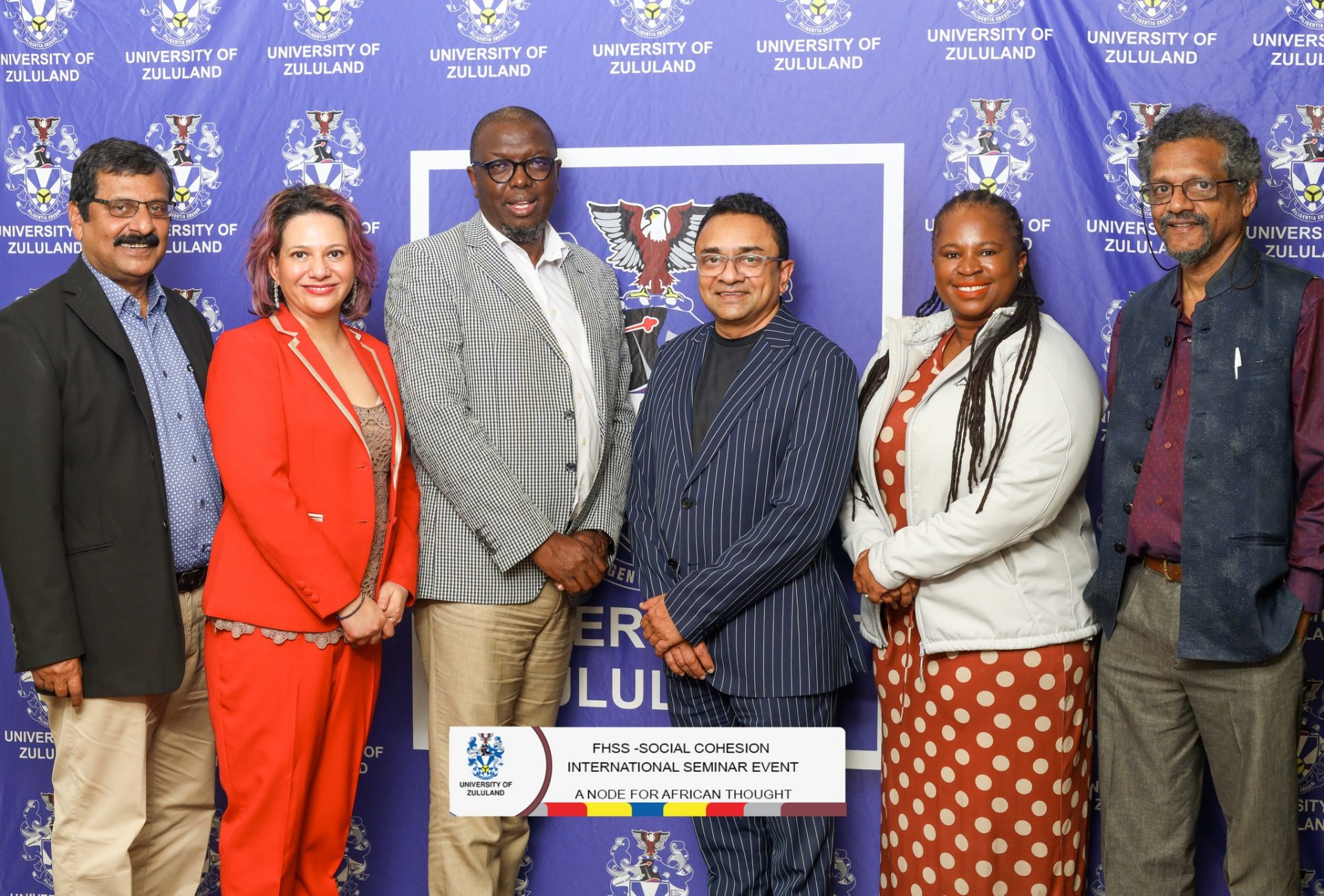Faculty of Humanities and Social Sciences hosts a Social Cohesion International Seminar event

The University of Zululand’s (UNIZULU) Faculty of Humanities and Social Sciences recently hosted a Social Cohesion International Seminar at KwaDlangezwa Campus.
The focus for this seminar was discussing Social Cohesion in Women, Social Capital, and Social Cohesion: The Case of Kudumbasree and Factors Determining Social Cohesion in Kerala.
Two senior professors from India, were the guest lectures for this occurrence. Dr Jos Chathululam, the director of Centre of Rural Management, Kottayam, India, and Professor John Moolakkattu, who is the dean of the school of Global Studies, Central University of Kerala in India.
Professor Moolakkattu discussed the factors determining Social Cohesion in Kerala. He commenced by laying a foundation on why there was a need to research on social cohesion. He explained that it is important because it is often seen as a cornerstone for growth and development and that social cohesiveness was identified as a crucial element in development practice in the 1995 Copenhagen Declaration on Social Development. He further discussed whether social cohesion is an independent or dependent variable, as people view it differently. Furthermore, he discussed the Inter-community competition sans violence, he said “Hindus and Muslims engage with each other vis civic life, political parties and non-religious movements for social justice or land reforms to trade unions and business groups, and this engagement prevent inter-community strife.” He spoke.
He concluded by giving lessons South African can adopt from Kerala. “Kerala would have lessons for South Africa such as is strengthening social capital especially of a cross cutting-nature, as it has its benefits. Secondly, a more response state to their demands articulated through political parties and pro-active measure to address inequality,” said. Prof Moolakkattu.
Dr Chathululam stated that he sees social cohesion as a sense of belonging and the relationship among members in a community and he further gave more definitions of social cohesion. Additional discussions were based on showing Kudumbasree through the lens of social cohesion, the features and characteristics of social cohesion that can be found in Kerala’s Kudumbasree which include (collective mentality, trust, strong social bond and (face-to-face communication). Insights about an initiative made in Kerala which was the women-orientated poverty eradication programme of government of Kerala, which was established on 17 May 1998 and was seen as a community-based self-help organization of women. A feminist-interventionist micro-finance program, which is in its 25th year and currently is more than a micro-finance institution.
In conclusion, the discussion such as the Structure of Kudumbasree; the three-tier structure of Kudumbasree in Kerala; how Kudumbasree is today; Kudumbasree through the lens of social capital and its role in social cohesion; Kudumbasree through the lens of social capital and its role in social and solidarity economy and its role in ensuring social cohesion; the role of Kudumbasree in fostering religious harmony and its role in social cohesion; political participation of Kudumbasree members and its role in mainstreaming social cohesion and the role of Kudumbasree in reducing income and wealth disparities and how it fostered social cohesion in Kerala.
The event closed with a question-and-answer session amongst the attendees and the guest speakers, which was followed by a vote of thanks given by the Dean of the Faculty of Humanities & Social Sciences, Professor Mogomme Masoga.
-Sinenhlanhla Ngcongo














2 Comments
Very interesting topic, appreciate it for posting.Blog money
This was a great read. Thank you for the detailed post.